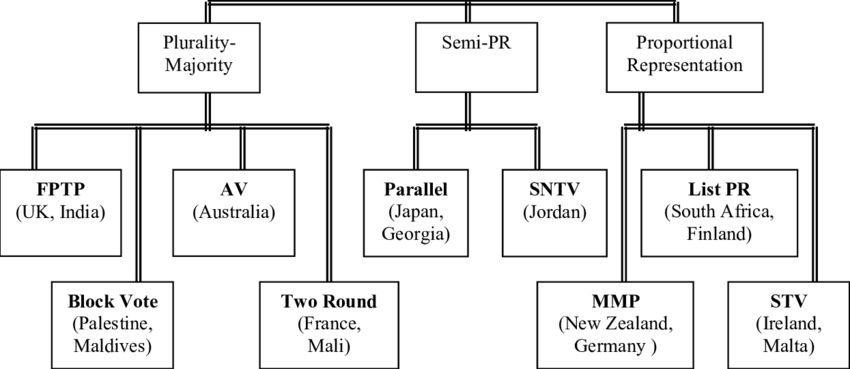The Impact of Political Representation on System Effectiveness
Discover how electoral system effectiveness influences political representation in this comprehensive study.

Evaluating the Effectiveness of Electoral Systems in Achieving Political Representation
In the dynamic landscape of governance and politics, the effectiveness of electoral systems in achieving political representation is a topic of perennial interest. In this era of constant updates, including US political news, political news today, state and politics, world politics news, and international political news, understanding the nuances of electoral systems is crucial. This blog post aims to delve into this subject and shed light on how different electoral systems impact political representation. We will also explore their relevance in upcoming political events and political campaign strategies.
The Essence of Political Representation
Political representation is at the heart of any democratic system. It's the means through which citizens convey their preferences and interests to those in power, entrusting them with the responsibility of making decisions that reflect the will of the people. Effective political representation fosters accountability, ensuring that elected officials work in the best interests of their constituents.
Understanding Electoral Systems
Electoral systems are the rules and methods used to translate citizens' votes into seats in a legislature or government. There are several different types of electoral systems in use worldwide, each with its strengths and weaknesses in achieving political representation:
First-Past-the-Post (FPTP): This system is used in countries like the United Kingdom and the United States. It is simple, but critics argue that it can lead to a lack of proportionality between votes received and seats won, potentially leaving certain groups underrepresented.
Proportional Representation (PR): PR systems aim to allocate seats in proportion to the total number of votes a party receives. This can result in more diverse legislatures, but it may also lead to coalition governments, which can be less stable.
Mixed-Member Proportional (MMP): MMP combines elements of FPTP and PR, offering a compromise between proportionality and local representation. Germany is a notable example of a country using this system.
Effectiveness of Electoral Systems
The effectiveness of electoral systems in achieving political representation depends on various factors, including the country's political culture, history, and societal norms. Let's evaluate these systems in the context of the US political news and state and politics:
FPTP in the US: The United States employs an FPTP system for its House of Representatives. While it provides clarity in terms of winners, it has been criticized for creating a two-party duopoly, potentially marginalizing third parties and limiting political diversity.
PR in Germany: Germany's PR system has contributed to a diverse Bundestag, fostering representation of smaller parties. However, it often necessitates coalition governments, which can lead to political instability.
MMP in New Zealand: New Zealand's recent switch to an MMP system has increased the representation of women and minority groups. It also promotes a mix of local and proportional representation.
International Perspective
When examining electoral systems globally, it's evident that there's no one-size-fits-all solution. Different countries prioritize different aspects of representation based on their unique contexts.
Upcoming Political Events and Campaign Strategies
The choice of electoral system plays a significant role in shaping political campaign strategies. In winner-takes-all systems like FPTP, campaigns often focus on key swing states or districts. In PR systems, parties may emphasize broad appeal to capture a larger share of the vote.
The Evolving Nature of Political Representation
Political representation is not a static concept; it evolves with societal changes and technological advancements. In today's fast-paced world of political news today, the dynamics of representation are further influenced by the digital age, social media, and increased global interconnectivity.
Digital Democracy: The rise of the internet and social media has transformed the way citizens engage with their representatives. Elected officials are now more accessible through online platforms, allowing for direct communication between constituents and their representatives. This has the potential to enhance political representation by enabling a more immediate and unfiltered exchange of ideas.
Globalization: The world has become increasingly interconnected, with international political news and global events impacting local politics. This interconnectedness necessitates a broader understanding of political representation that goes beyond national borders. Representatives are often required to address global issues, reflecting the changing nature of governance and politics.
Diversity and Inclusivity: Achieving true political representation also means addressing issues of diversity and inclusivity. Electoral systems should evolve to ensure that women, minorities, and marginalized groups are adequately represented. Affirmative actions, gender quotas, and outreach programs are some strategies that can help improve inclusivity.
Transparency and Accountability: In the age of instant information dissemination, citizens expect transparency and accountability from their elected officials. Effective representation now includes not only advocating for constituents' interests but also providing clear and honest information about policy decisions and government actions.
Electoral Reforms: Many countries are reevaluating their electoral systems to better align with the principles of political representation. This includes considering reforms like ranked-choice voting, which allows voters to express their preferences more accurately and can lead to more consensus-based representation.
Engagement in Upcoming Political Events: As we approach upcoming political events, it is essential to consider how different electoral systems may impact the outcomes. Voters should be informed about the electoral systems in place and how they can make their voices heard effectively. Political campaign strategies need to adapt to these systems to maximize their chances of success.
The Role of Citizens in Ensuring Effective Representation
While electoral systems play a significant role in shaping political representation, citizens also have a crucial role to play. In a democracy, active and informed citizen engagement is the cornerstone of effective representation. Here are some ways citizens can contribute:
Educate Yourself: Stay informed about the electoral system in your region and understand how it may affect political representation. Educate yourself about the candidates and their positions on key issues.
Participate Actively: Exercise your right to vote in upcoming political events. Encourage others to vote as well. High voter turnout is essential for a healthy democracy.
Advocate for Reform: If you believe that the electoral system in your area needs reform, advocate for change. Engage with local representatives and join or support organizations working towards electoral reform.
Hold Representatives Accountable: Hold your elected officials accountable for their actions and decisions. Communicate your concerns and expectations, and support transparency initiatives.
Embrace Digital Advocacy: Leverage the power of digital platforms to express your views, connect with like-minded individuals, and engage in constructive political discourse.
Evaluating the effectiveness of electoral systems in achieving political representation is a multifaceted endeavor that encompasses not only the design of the system but also the evolving nature of governance and politics. As we navigate the world of state and politics, we must adapt our understanding of political representation to address contemporary challenges and opportunities. Ultimately, the goal is to ensure that the voices and interests of all citizens are heard and represented in the corridors of power, regardless of the electoral system in place.
What's Your Reaction?




















